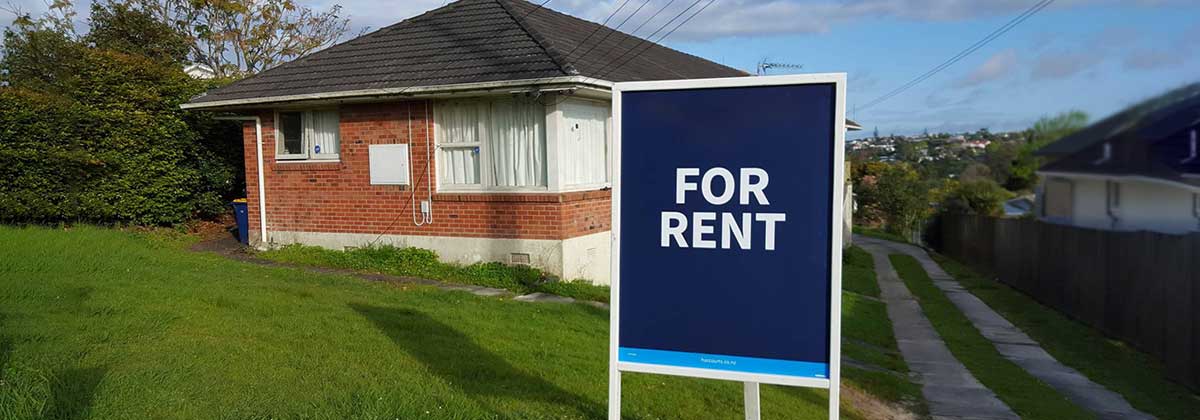Renting out your home over the holidays can be a great way to make some extra cash. But you still have to take precautions to make sure your home is safe. Canstar takes a look at the fineprint for renting out your home via Airbnb, Bachcare and Bookabach, so you know what protections you have as a host or landlord. In this guide, we’ll also take a look at a few home and contents insurance pointers, so you know what to consider before you rent out your property.

What protection do homeowners have with Bookabach?
We had a look at the terms and conditions for using Bookabach, to see how the service helps to protect its users. Bookabach uses terms as laid out by global umbrealla company HomeAway. The following international property rental companies also fall under HomeAway: Vrbo, HomeAway.com, Homelidays.com, Abritel.fr, FeWo-direkt.de and Stayz.com.au.
Bookabach operates by using what it calls its “House Rules” system. Each homeowner stipulates what their house rules are, such as no parties, no smoking, or no pets. When a renter goes through the process of booking a property, or even enquiring about a property, they have to accept any house rules that the homeowner has specified on Bookabach.
Bookabach’s house rule system is split up into four predefined sections:
- Max occupancy.
- Events/Parties allowed.
- Pets allowed.
- Smoking allowed.In addition, property owners can add up to three custom rules. Under each rule, Bookabach provides a “Notes for traveller” section, that allows property owners to enter up to a 50-character message for details on each rule. For example, the homeowner might allow smoking at the property but add in a note for guests that smoking is outside, only.
One important point to be aware of is that Bookabach does not provide liability insurance protection for owners, property managers, or travellers. This is regardless of whether Bookabach users have taken out insurance through one of the company’s third party providers. Bookabach advises travellers to get suitable travel insurance, to cover their booking for the property from an owner. The company also advises that travellers have travel insurance in the event that the guest has to cancel their booking and says that it is the travellers’ responsibility to make sure their travel insurance is up to scratch. If you are a traveller and are unsure what travel insurance will work for you, have a look at Canstar’s free travel insurance comparison tools.
What protection do homeowners have with Bachcare?
Under Bachcare’s terms and conditions, there is a list of 14 “rule breaches” that could result in a guest being evicted and/or being fined up to $1000 per breach. These 14 rule breaches are as follows:
- Pitching of caravans or tents on the property without the written consent of the Bachcare Support Office.
- Parties, events, weddings, receptions, stag / hen festivities without the written consent of the Bachcare Support Office. Parties includes extra persons not authorised by Bachcare.
- Excess people above the maximum, not authorised by Bachcare Support Office in writing.
- Smoking on the property unless permitted by the property listing.
- Abuse, including verbal or physical, of Bachcare representatives, the owner or its representatives or the neighbours.
- Undue nuisance or noise to neighbours or the local community.
- Use of illegal substances or conduct of illegal activities at the property
- Anything that could invalidate the insurance policy for the property.
- Moving or rearranging furniture.
- Cutting keys or obtaining remote door controls for the property.
- Tampering with smoke alarms.
- Leaving a fireplace, oven, or any other cooking unattended.
- Booking on behalf of another person without intending to be at the property during the stay.
- Bringing a pet onsite when unauthorised, or inside the house if the house only allows pets outside.
If a guest is evicted from the property, then they have to forfeit any amount that they have already paid. The holiday manager is also allowed to remain at the property, as the guest gets ready to depart. On top of this, the guest will be charged a mandatory exit clean, at $35 per hour.
Guests also use any amenities, such as kayaks, surf boards, bikes and spa pools, at their own personal and financial risk. According to Bookabach’s terms and conditions, “neither Bachcare nor the property owner will be liable for any injury, loss or damage you or any other person may suffer”.
Guests are also required to advise the Bachcare holiday manager of any loss or damage that has occurred at the property during their stay. The guest is responsible for any costs associated with the damage, as wellas for any loss of income that results from the Bachcare property owner not being able to rent out their property.
What protection do homeowners have with Airbnb?
In January 2015, Airbnb launched its Host Protection Insurance. Initially only available to accommodation hosts in the US, Airbnb later rolled out the cover to a total of 16 countries:
- Australia
- Canada
- China
- France
- Germany
- India
- Ireland
- Italy
- Japan
- The Netherlands
- New Zealand
- Portugal
- Singapore
- Spain
- United Kingdom
- United States
Airbnb’s Host Protection Insurance may provide coverage to hosts ,irrespective of what other insurance arrangements they have, but that does not mean that it covers you for everything.
The Host Protection Insurance programme provides primary liability coverage for up to $1,000,000 USD ($1,363, 600 NZD) per occurrence, in the event of a third-party claim of bodily injury or property damage related to an Airbnb stay.
This coverage is subject to a $1,000,00o USD cap per listing location, and certain conditions, limitations and exclusions may apply. Review the list of the covered countries.
The Host Protection Insurance programme only acts as the primary insurance coverage for incidents related to an Airbnb stay, but is available to hosts, regardless of their other insurance arrangements.
According to Airbnb’s terms and conditions, here are some examples of what its host protection should cover:
- A guest breaks their wrist after slipping on the rug and brings a claim for the injury against the host.
- A guest is working out on the treadmill in the gym of the apartment building. The treadmill breaks and the guest is injured when they fall off. They bring a claim for the injury against the host and the landlord.
- A guest accidentally drops their suitcase on a third party’s foot in the building lobby. The third party brings a claim for the injury against the host and the landlord of the host’s building.
Some examples of what the Host Protection Insurance programme doesn’t cover:
- Intentional acts where liability isn’t the result of an accident.
- Accusations of slander or defamation of character.
- Property issues (ex: mould, bed bugs, asbestos, pollution).
- Auto accidents (ex: vehicle collisions).
Airbnb recommends that hosts get insurance, over and above their own property protection programme. It also urges landlords to do their homework, to make sure that landlords understand the policy carefully and that they understand any inclusions.
If companies provide cover, why get home and contents insurance?
As shown with the Airbnb example, their host cover may protect you for some situations, but not every situation. And while that will also be the case with home and contents insurance policies, if you do your homework, you should be able to get a policy that works for your own needs. To help you make a choice, Canstar compares home and contents insurance providers, so you can see how satisfied New Zealanders are with the options available in the market. While we understand price will, of course, be a key consideration, we also know there is a lot more to choosing a provider than that. That’s why Canstar asks thousands of New Zealanders to rate their experience with home and contents insurance providers, based on: Overall satisfaction, value for money, ease of claim, process, speed of response, quality of service and communication. You can see how providers compare, below.








Share this article